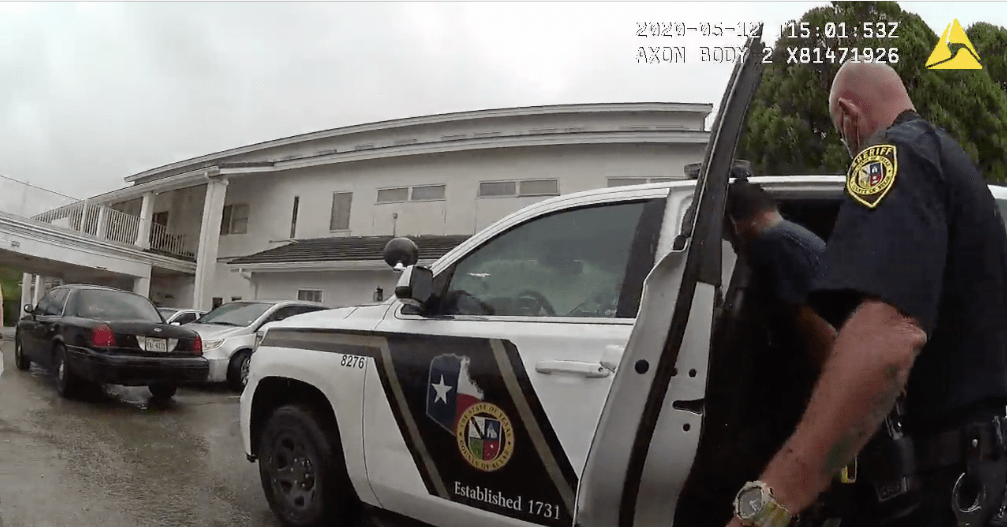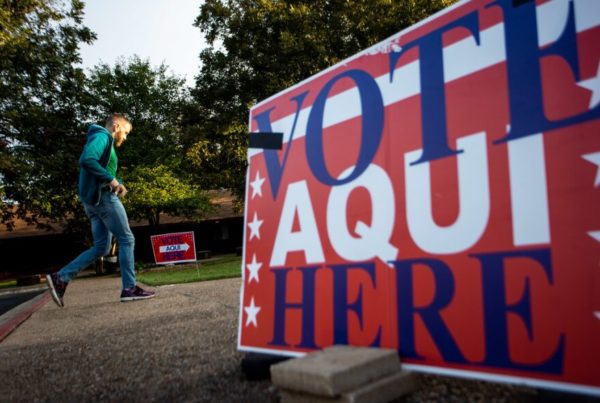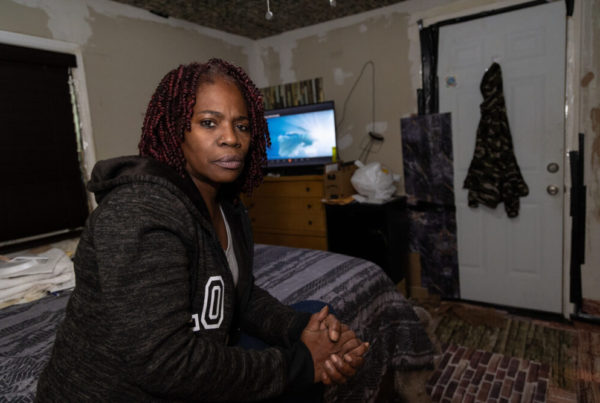Last year, the investigative podcast “Reveal” looked into the tazing of a teenage asylum-seeker by Bexar County Sheriff’s Deputy Patrick Divers. Body-camera footage obtained by the news outlet revealed Divers tazed the 16-year-old who was in federal custody, living in a migrant shelter in San Antonio, for 35 seconds. The incident raised concerns about how government-run child-migrant shelters were relying on local law enforcement to manage their operations.
Now, Reveal reports that Divers will not face discipline for his actions. Reporter Laura Morel, spoke with the Texas Standard about the terms of a collective-bargaining agreement between the Bexar County Sheriff’s Office and the local sheriff’s union that led to that decision. Listen to the interview with Morel in the audio player above or read the transcript below.
This interview has been edited lightly for clarity.
Texas Standard: It’s been about six months since your original story with body-camera footage was released, which seemed to show a sheriff’s deputy tazing a minor in government custody. What has happened to this sheriff’s deputy since then?
Laura Morel: We’ve recently learned that the deputy, Patrick Divers, won’t be disciplined for tazing the child. An internal affairs investigation justified his use of force, but found that Divers violated other policies, including failing to verbally notify a supervisor that he had used his Taser. But the sheriff’s office told us that Divers couldn’t be disciplined because he’s covered by a union contract that shields deputies from discipline 180 days after any given incident.
The sheriff’s office told you Divers couldn’t be disciplined, even if something bad were found about his use of force because of a collective-bargaining agreement, do I understand that correctly?
That’s correct. And this is the collective-bargaining agreement that covers deputies at the Bexar County Sheriff’s Office. But the union behind that agreement, the Deputy Sheriff’s Association of Bexar County, told us that they disagree with the sheriff’s framing and allege that Sheriff Javier Salazar is using this rule to avoid criticism for keeping Divers on the job.
We actually spoke to the negotiator for the union, Ron DeLord, and he told us that Salazar could have pursued discipline under a different provision in the contract, which allows the sheriff to seek action at any time. So there is no time limits in cases that involve “criminal conduct.” And that does not mean that a criminal charge has to be filed against the employee.
You reported that Sheriff Salazar was reelected in 2020, and he ran on a platform of reform. What does he have to say about this incident?
We’ve requested to speak with Salazar at least a dozen times since May. And despite repeated statements from his office that staffers would check his availability and get back to us, his team formally declined an interview with us last month. I will also say that after we published the footage, the sheriff’s office immediately placed Divers on administrative leave pending an investigation. That was sort of where we left off the story last year.
But since then, the department has provided many contradictory statements about its investigation. For example, in December, they told us that Divers had returned to work, but that the investigation was ongoing. And then a month later, in January, we were told that the investigation actually concluded in July. We also obtained new records that raise questions about whether Salazar’s office actually knew about the child’s tazing before we told them; they told us last year that they were unaware of the incident until we notified them about it. But we now know that Divers completed a use-of-force report the day of the tazing, and it was signed by a supervisor and forwarded to internal affairs.
RELATED: Tasing reveals police role in disciplining youth at migrant shelters
So a lot of this is not adding up. What about the boy at the center of all of this, what has happened to him?
The boy was released from federal custody when he turned 18, and he remains in the United States while he seeks immigration relief. We recently spoke to him after we were able to get the internal affairs report, and I just want to note that the report states that the boy was a flight risk because he was tying the string on his pants. But when we spoke to the child recently, he explained to us that he was tying his pants because he was worried that they would fall down, leaving him exposed.
Has anything changed about the relationship between government shelters and local police?
It’s unclear at this moment whether there have been any changes. We do know, however, that U.S. Rep. Joaquin Castro, who represents San Antonio, had called for a federal investigation into the issue last year. And last month, Castro confirmed that the Inspector General’s Office received his inquiry. He also let us know that he included language in this year’s appropriations bill that recommends more funding to rebuild and train staff at these government-funded shelters on trauma-informed care so that they can better take care of these vulnerable children.













